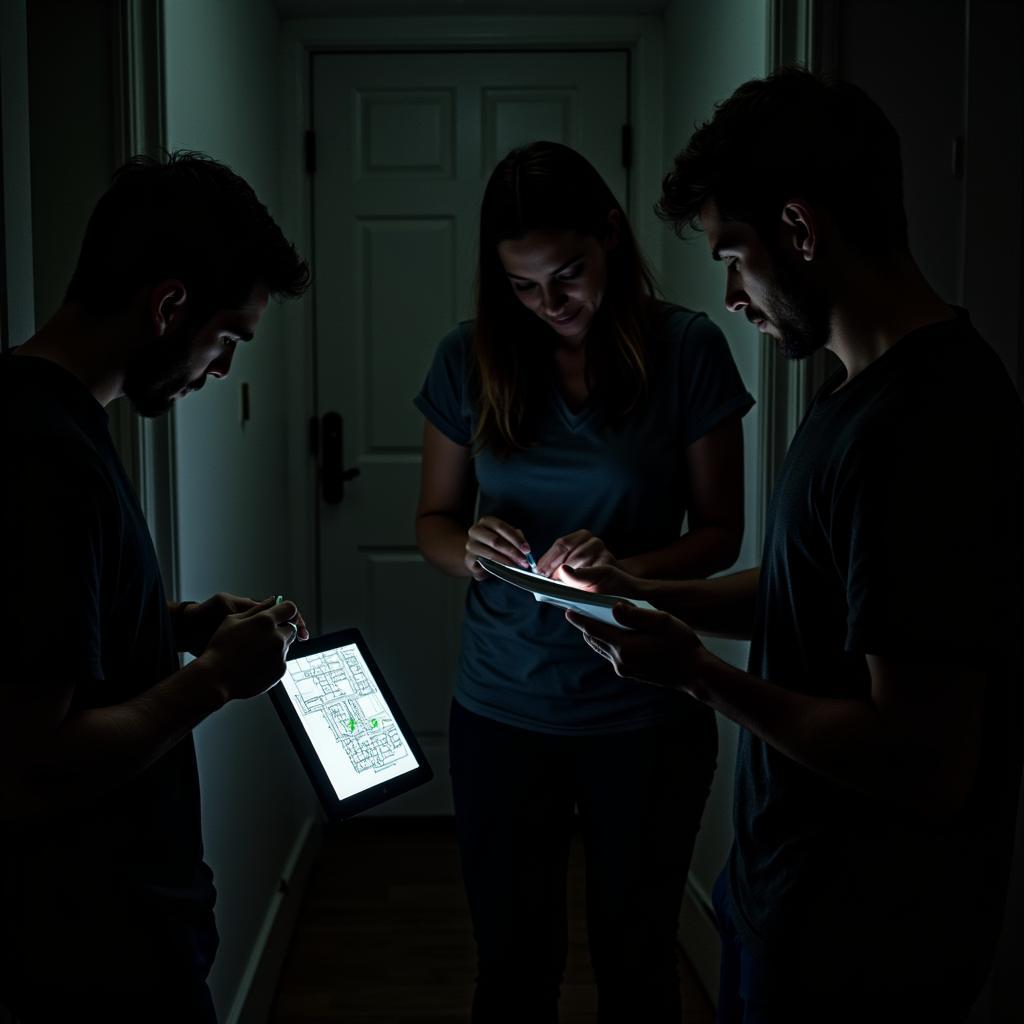Desk based research is the systematic process of collecting and analyzing information already available in existing sources. This method, also known as secondary research, leverages data compiled by others, offering a cost-effective and efficient way to gain insights into a topic. Within the paranormal field, it’s the foundation upon which many investigations begin, providing crucial context and background before fieldwork commences. Learn how desk research works, its benefits and limitations, and how it plays a crucial role in uncovering the unknown.
Unveiling the Mysteries of Desk Based Research: A Comprehensive Guide
Desk research can involve various sources like books, journals, reports, online databases, and even social media. It’s a critical first step in any research project, particularly in paranormal investigation where preliminary data can inform the direction and scope of fieldwork. It can help you understand the history of a location, identify recurring paranormal phenomena, and even pinpoint potential triggers. Soon after conducting some preliminary desk research, I discovered the market research app which was incredibly helpful in organizing my findings.
Why is Desk Based Research Important?
Desk research offers numerous advantages. It’s significantly cheaper than primary research (like conducting interviews or experiments). It’s also much faster, allowing researchers to access a wealth of information quickly. Imagine trying to understand the complexities of a haunted location without first consulting historical records or previous paranormal investigations. Desk research provides that critical foundation. For example, an investigation into a supposedly haunted hospital might start with researching its history, patient records, and any documented strange occurrences. This pre-fieldwork knowledge offers investigators valuable insights and helps shape their investigative approach.
Different Types of Desk Based Research
Desk research takes many forms, each offering unique insights. Exploring different approaches like literature reviews, case studies, and data analysis can offer a more complete understanding. For those interested in exploring specific approaches, checking out resources on types of desk research can be particularly beneficial. This allows for a targeted approach to gather specific information relevant to the research objectives.
Desk Based Research Limitations
While invaluable, desk research has limitations. The available data may not always be directly relevant to your specific research question. Also, the accuracy and reliability of sources need careful evaluation. Just because something is written doesn’t make it true. Discerning credible sources from biased or unsubstantiated claims is crucial, especially within the paranormal field. This is where cross-referencing information and critical thinking become essential.
 Evaluating Desk Research Sources
Evaluating Desk Research Sources
Desk Based Research in Paranormal Investigations: A Deeper Dive
How exactly does desk based research apply to the search for the supernatural? It’s the starting point for understanding the history and context of a potentially haunted location. This process could involve analyzing historical documents, local legends, and eyewitness accounts. It allows investigators to separate fact from fiction, identify potential paranormal hotspots, and develop a targeted investigation strategy. It’s like putting together a puzzle where each piece of information, no matter how small, can contribute to the larger picture.
Practical Applications of Desk Based Research
Consider a haunted house investigation. Desk research might uncover historical records of tragic events, past resident testimonies, or even previous paranormal investigations. This information can inform the team’s approach, helping them focus their efforts on specific areas within the house. This targeted approach often yields more compelling results than simply wandering around in the dark.
“Thorough desk research is the bedrock of any credible paranormal investigation,” says Dr. Emily Carter, a leading parapsychologist. “It provides the context necessary to interpret findings and avoid misattributing natural phenomena to paranormal activity.”
Combining Desk Research with Fieldwork
Desk based research and fieldwork are complementary. The initial desk research informs the fieldwork, while the fieldwork findings can lead to further desk research. This iterative process allows for a deeper and more comprehensive understanding of the paranormal phenomena being investigated.
 Combining Desk Research with Fieldwork
Combining Desk Research with Fieldwork
Conclusion: The Power of Desk Based Research
Desk based research is a powerful tool for any investigation, especially in the mysterious realm of the paranormal. It provides a solid foundation for exploration, offering crucial context, background information, and potential leads. By carefully analyzing existing data, we can begin to unravel the mysteries that surround us. For those seeking careers involving analytical skills, exploring extremism research jobs could be a rewarding path. Understanding desk based research is essential for anyone venturing into the unknown.
FAQ
- What is the difference between desk research and field research?
- What are some common sources used in desk based research?
- How can I evaluate the reliability of online sources?
- Is desk research always necessary?
- What are some examples of desk based research in different fields?
- How can desk research be used to improve business decisions?
- How can I find relevant desk research resources for my topic?
Common Scenarios for Desk Based Research
- Investigating a haunted location: Historical records, previous investigations, eyewitness accounts.
- Researching a specific paranormal phenomenon: Scientific studies, folklore, cultural beliefs.
- Analyzing data from paranormal equipment: Comparing readings with environmental factors and historical data.
Further Exploration
Explore other relevant articles on our website, such as articles on research suites like huron research suite and how quantitative methods are used in quantitative equity research. These resources can further expand your understanding of research methodologies.
For any assistance or further inquiries, please contact us at Phone Number: 0904826292, Email: research@gmail.com or visit us at No. 31, Alley 142/7, P. Phú Viên, Bồ Đề, Long Biên, Hà Nội, Việt Nam. Our customer support team is available 24/7.